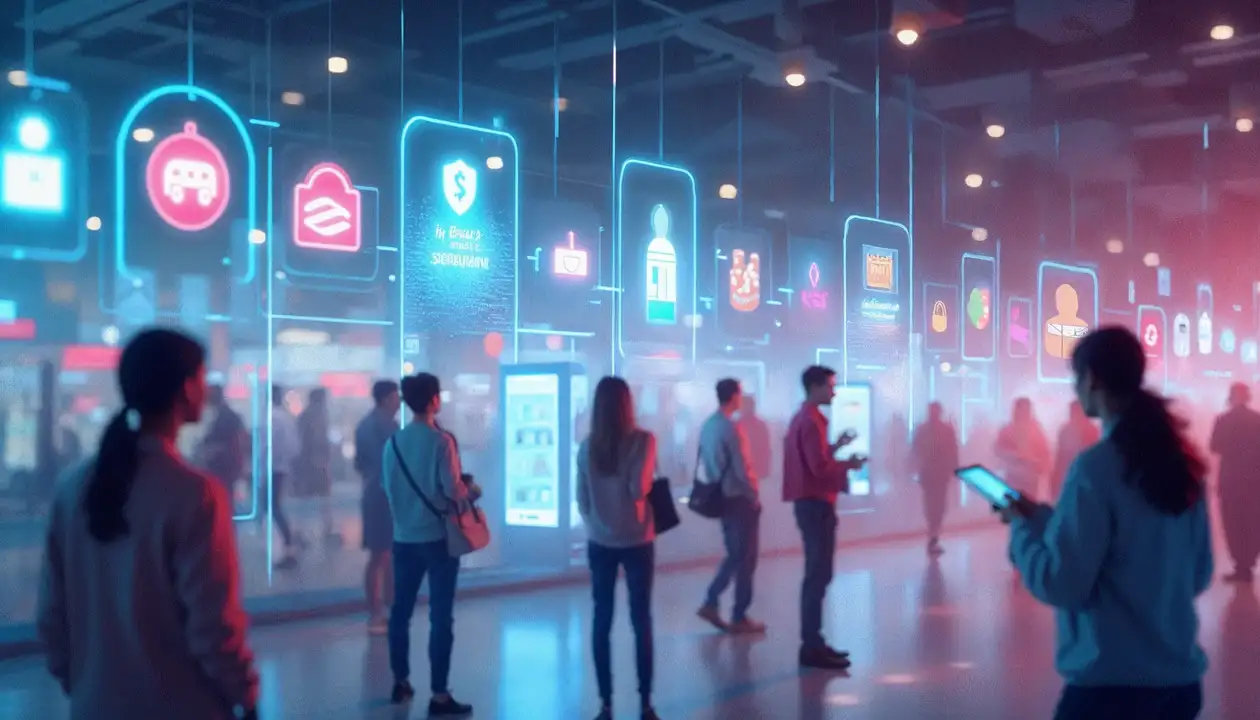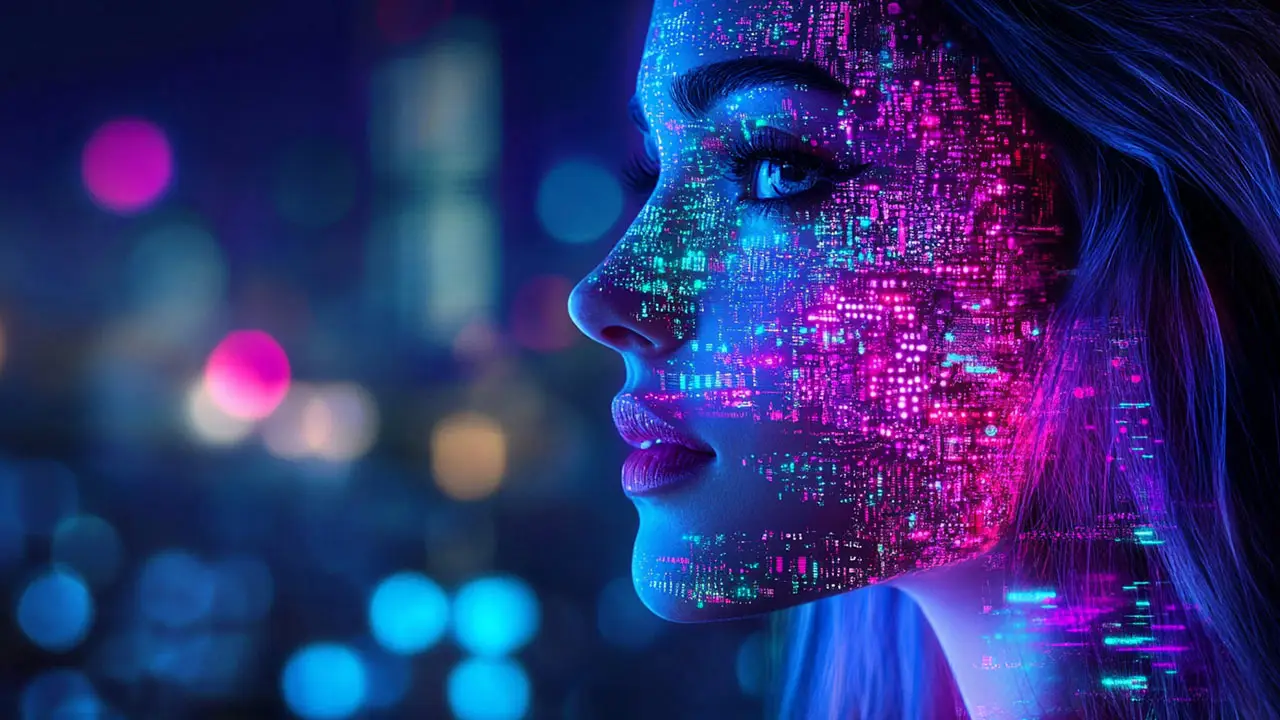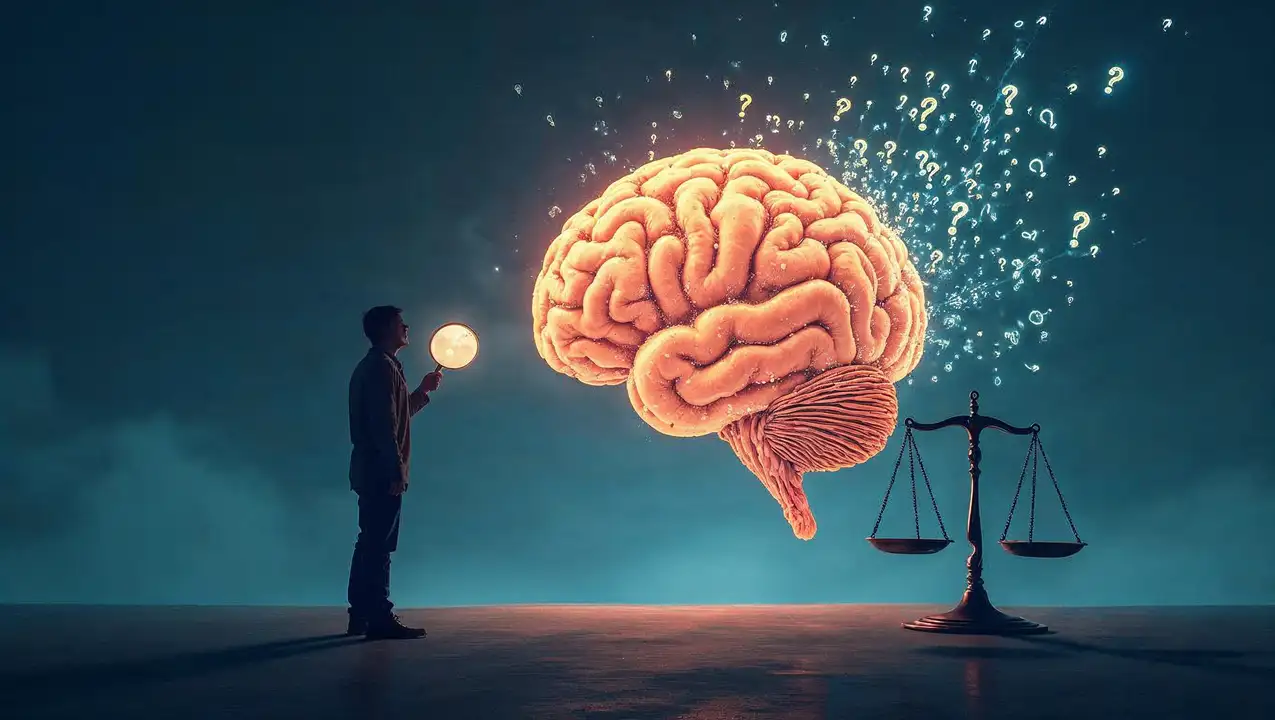Artificial intelligence is no longer a futuristic concept confined to science fiction movies. It’s here, today, and its impact is being felt across an increasing number of domains. I often say that “AI will change everything,” but behind these words lies a much more complex and fascinating reality.
It’s not a magic wand, but rather a set of powerful tools that, when used properly, can radically transform the way we live, work, and interact with the world.
Hold on tight, because the future is already in motion and AI is the engine of this transformation.
The Dawn of a New Era
Imagine a world where repetitive and tedious tasks disappear, where medicine is more precise and personalized, where education adapts to each learner, where human creativity is amplified by the power of algorithms.
This world is not a distant dream—it’s the promise of AI. We stand at the dawn of a new era, an era where artificial intelligence becomes an omnipresent partner, a catalyst for progress in all sectors of human activity.
The potential is immense, and the challenges are equally considerable. But one thing is certain: the global landscape will be redefined, and AI will be its chief architect.
Yet nothing is guaranteed, and today, an LLM “only” predicts the next token, meaning it anticipates the most probable textual output within a context given by the user’s prompt.
No, the future revolution will come from AI agents that can launch functions connected to various tools: this is already what we use at GDM-Pixel and Digital Cookie, via our Aaia-XP product (whose WordPress plugin is coming soon).
But beyond chatbots or personal assistants, many web-related professions are about to be disrupted…
The topic of this article is therefore to identify products and services that already use AI (agents, chatbots, or assistants) to improve their functionality.
AI and Web Marketing: A Deep Transformation
Let’s start with the most obvious: web marketing isn’t what it used to be. The rise of AI completely disrupts the rules of the game. Forget generic advertising campaigns and standardized content strategies. AI offers the possibility of personalization at scale, real-time optimization, and customer understanding of unprecedented depth.
It’s a real tsunami on the horizon, and those who learn to surf the wave will be tomorrow’s big winners. But how exactly does AI transform web marketing? That’s what we’ll explore together.
Content Strategy Transformation
Before, we created content based on intuitions, sometimes outdated market studies, lots of elbow grease, or with a good solid keyword analysis.
Now, AI acts as a true co-pilot. It analyzes masses of data to identify trending topics, engaging formats, and converting keywords. We can give it all the context from our spreadsheet and ask it to output relevant data.
Imagine having an army of analysts at your disposal, capable of dissecting trends and anticipating your audience’s needs. That’s the power AI puts at your fingertips. It doesn’t replace human creativity, but it boosts, guides, and optimizes it.
Online Advertising Optimization
Online advertising was a bit like shooting arrows in the dark. We hoped to hit our target, but often wasted precious resources. AI changes the game. It enables ultra-precise targeting, real-time bid optimization, and ad personalization at an unprecedented level.
It learns constantly, adjusts campaigns based on results, and maximizes return on investment. It’s like having an autopilot for your advertising campaigns, a pilot who knows the route perfectly and optimizes every step of the journey.
We can mention the excellent Crigloo, which allows adjusting campaign budgets based on performance results.
SEO Evolution Through AI
SEO used to be mainly about keywords and links. That’s still important, of course, but AI has complexified and enriched the game. Search engines like Google use AI to understand user intent, evaluate content quality, and provide relevant search results.
It’s no longer enough to optimize for robots; you must optimize for humans. AI allows us to analyze user behavior, identify long-tail keyword opportunities, and create content that perfectly meets their needs.
We no longer write by hand: we use a whole range of tools to create content better, faster, and more targeted.
Web Marketing Professions Facing AI: Between Adaptations and Opportunities
So, should we fear AI? Will it replace web marketers? The answer is no. At least, I don’t think so for now.
AI doesn’t replace human skills; it amplifies them. Web marketing jobs will evolve, specialize, and become more complex.
We’ll need to learn to collaborate with AI, use its tools, and interpret its results. The future belongs to those who can combine human creativity with the power of artificial intelligence. Those who can reinvent themselves, those who embrace change—they will see exciting new opportunities open up.
Tomorrow’s web marketer will be an orchestrator, a strategist, and an analyst, capable of managing complex campaigns and fully exploiting AI’s potential.
I often say this to summarize:
AI might not replace humans, but humans who use AI will replace those who haven’t managed to catch the train…
E-Commerce: A Revolution Powered by AI
E-commerce has already transformed our consumption habits, but this is just the beginning. Artificial intelligence is about to propel the sector to new heights by offering ultra-personalized customer experiences, optimizing logistics, and strengthening security.
Imagine an e-commerce platform that anticipates your needs, suggests products you’ll love before you’ve even searched for them, delivers in record time, and protects you against fraud. This is AI’s promise, and it’s becoming reality. Prepare for a revolution in online shopping.
Extremely Personalized Customer Experience
AI enables the shift from basic personalization (like displaying your name in an email) to a tailor-made, almost predictive experience. It analyzes your browsing data, previous purchases, social media interactions, and even your location to offer ultra-relevant recommendations.
Here, I’m not simply talking about cookie reading or segmented user journey analysis. I’m talking about using an LLM to analyze user behaviors and propose personalized experiences.
Imagine a website that adapts in real-time to your mood, offers you special deals based on local weather, or suggests gifts for your loved ones based on their interests.
It’s like having a personal salesperson, available 24/7, who knows you better than you know yourself. AI transforms e-commerce into a truly unique and immersive experience.
Our Aaia-XP service already does this: the chatbot can accurately answer user questions, and it’s on our roadmap to strengthen interactions by conducting analysis when the user connects to make personalized suggestions.
It’s not very complicated: just analyze past orders or simply the user journey, retrieved by a simple cookie or stored in a session variable, to put the LLM in the loop and transform the chatbot into a real sales assistant.
Logistics and Supply Chain Optimization
Logistics and supply chain are often e-commerce’s weak points. Delivery delays, stock shortages, and high shipping costs can harm the customer experience. AI can solve these problems by optimizing every step of the process, from demand forecasting to inventory management to delivery route planning.
Obviously, this is mainly about algorithms, so no need for LLMs there.
Where AI can make a difference, however, is in customer support: no more need to send a ticket for order tracking (yes, it happens)—we can simply ask the assistant “where is my order?” to get a precise answer.
Fighting Fraud and Improving Security
Online fraud is a major problem for e-merchants. Fake accounts, stolen credit cards, and phishing attacks can cause considerable financial losses and damage a company’s reputation.
AI can help fight fraud by detecting suspicious behavior, analyzing transactions in real-time, and identifying fraudulent patterns.
Upon fraud suspicion, we can put a conversational agent in the loop to perform identity verification…
The Future of Online Commerce: An Omnichannel and Immersive Experience
AI isn’t limited to improving the online shopping experience. It’s also transforming physical commerce by creating an omnichannel and immersive experience. Imagine smart stores that recognize your preferences, offer personalized promotions, and guide you to the products you’re looking for.
Nvidia recently launched its platform for creating personal assistants, an avatar you can talk to in real-time.
Coupled with a simple RFID chip scan, the agent can advise in-store customers about products they want to buy and even propose special offers.
Sales staff in certain major sporting goods chains have reason to worry…
AI’s Impact on the Digital World
We’ve already seen that AI transforms web marketing and e-commerce, but that’s just the tip of the iceberg. Its impact goes far beyond, touching all aspects of our daily and professional lives. How will this revolution actually materialize in the coming years?
Increased Productivity Through AI
AI is productivity’s ultimate ally. It can automate repetitive tasks, analyze complex data, and make decisions quickly. It’s a considerable time gain, but it’s also a source of efficiency and innovation.
Personally, I experience it every day.
Automation of Repetitive Tasks
AI excels at automating repetitive and time-consuming tasks. Examples? Email processing, data entry, appointment scheduling. Thankless tasks that can monopolize a significant part of our time and energy.
At GDM-Pixel, we’ve developed a complete range of services to help businesses increase their productivity through AI: you can check this page to learn more.
Data Analysis and Decision Making
AI can analyze masses of complex data and extract valuable information. Imagine having a tool capable of dissecting financial reports, analyzing market trends, and predicting customer behavior in record time.
AI can identify patterns, correlations, and opportunities that would be impossible for a human to detect. It can then use this information to make more informed and faster decisions.
Clearly, for critical decisions, you need to put a human in the loop: but we already know how to do that.
The assistant runs its analysis process, makes a decision, and sends a notification to the human user who will validate or reject the result.
Improving Collaboration and Communication
AI can improve collaboration and communication within a team or company. Tools like chatbots, virtual assistants, and intelligent communication platforms can facilitate exchanges, improve coordination, and optimize workflow.
For example, a chatbot can answer frequently asked questions from customers or employees, thus freeing up time for support teams (we can implement this too).
A virtual assistant can organize meetings, manage calendars, and send reminders.
An intelligent communication platform can also automatically translate messages into different languages, thus facilitating international collaboration. It’s like having an ultra-efficient facilitator, capable of streamlining exchanges and strengthening cohesion.
More Intuitive and Personalized Software
Forget complex interfaces and indigestible user manuals. AI makes software more intuitive, easier to use, and better adapted to each user’s needs.
Voice Recognition and Natural Language Processing
AI allows controlling software by voice, asking questions in natural language, and getting precise and relevant answers. Gone are the days of complex commands and endless drop-down menus. You can interact with your software intuitively and naturally, as if speaking to a human assistant.
Again, this is something we can implement on Aaia-xp. It’s a revolution in human-machine interaction. For example, we can dictate an email and ask the assistant to send it to the right contact.
AI in Service of Creation and Design
AI isn’t just an automation tool; it’s also a powerful ally of creativity. It can generate ideas, create visuals, compose music, and even write texts. It doesn’t replace artists, but it offers them new possibilities for expression and exploration.
Visual and Textual Content Generation
AI can generate images, videos, texts, and music autonomously. It can create logos, illustrations, blog articles, scripts, and even songs. It doesn’t replace human creativity, but it amplifies and multiplies it.
Well, for logos, I admit, it’s not obvious yet. But at least AI has the merit of giving clues to designers.
For the rest, images, we already work with several generators, some directly via API:
The time savings are enormous.
Assistance in Creation and Design
AI can assist artists and designers in their work by suggesting ideas, proposing solutions, and automating certain tasks. It can help choose colors, find patterns, optimize layout, and perfect details.
Again, this relieves part of the workload: graphic research is long and tiring. Here, the process will be faster and much more fluid…
The Future: Preparing and Embracing Change
AI will change everything, that’s now clear. But this change shouldn’t be endured; it should be embraced. The key is preparation. Training, adapting, anticipating developments—these are the watchwords for navigating this new world. AI isn’t a threat, but an opportunity to seize. So, how do we prepare concretely?
AI Will Redefine the Digital World
AI isn’t just another technology; it’s a real earthquake reshaping our online experiences. And web professionals will be the first affected!
- Web Marketing: AI enables ultra-sophisticated campaign personalization, real-time optimization, and better customer understanding. It automates repetitive tasks, analyzes data, and helps create more relevant and engaging content.
- E-commerce: AI improves customer experience through personalized recommendations, optimized logistics, and enhanced fraud protection. It enables creating more immersive shopping experiences better adapted to each customer’s needs.
- Software: AI makes software more intuitive, easier to use, and better adapted to each user’s needs. It enables voice control of software, asking questions in natural language, and getting precise and relevant answers.
The coming months will confirm this trend, I’m absolutely certain: AI will become a second brain, faster, more accessible… And more intelligent!
Become an Agent of Change
Faced with this revolution, it’s vital not to remain passive. It’s time to train, acquire new skills, and adopt a proactive approach. I tell my students every time: don’t remain passive in the face of AI: test absolutely everything you can!
Training and Developing Skills
Learning AI basics, understanding its applications, and mastering associated tools is essential. There are many online training courses, from MOOCs to professional certifications, that allow acquiring these skills. Don’t stay on the sidelines! Here’s what you can do:
- Data Analysis: mastering data analysis tools is essential for understanding insights generated by AI and making informed decisions.
- Chatbot Development: learning to create and manage chatbots is a valuable asset for improving customer experience and automating repetitive tasks.
- Marketing Automation: mastering marketing automation tools allows personalizing marketing campaigns and optimizing the customer journey.
Adopting a Proactive Approach
Don’t just wait for change to hit you head-on. Anticipate developments, experiment with new approaches, and be ready to question your habits. AI offers incredible opportunities—it’s up to you to seize them.
- Experiment with new tools: Test new platforms and new AI-based tools to discover their potential and identify best practices.
- Stay informed about latest trends: Follow AI news, read specialized articles, participate in conferences, and stay connected with sector experts.
- Don’t be afraid to fail: Innovation involves taking risks. Don’t be afraid to fail, learn from your mistakes, and persevere.
Developing Critical Thinking
AI isn’t a miracle solution to all problems. It’s essential to develop critical thinking to evaluate AI results, identify potential biases, and make informed decisions. Don’t believe everything you see: there are plenty of bullshit AI products (I’ve tested loads). You need to know how to recognize emerging products that have no future and truly disruptive products that will make a real difference.
- Question results: don’t take AI results at face value. Verify their accuracy, analyze source data, and identify potential biases.
- Understand AI limitations: AI isn’t perfect and has its limits. Understand its strengths and weaknesses to use it appropriately.
- Adopt an ethical approach: AI raises important ethical questions. Think about the implications of your actions and act responsibly.
An Optimistic Perspective: AI in Service of Humanity
Yes, AI raises questions and challenges. But we mustn’t forget that it’s primarily a powerful tool that can improve our lives and create a better future.
AI can help us solve our era’s most urgent problems, from climate change to fighting diseases. It can free us from repetitive tasks and allow us to focus on what really matters: creativity, innovation, and human relationships.
-
AI for a more sustainable world: AI can help us optimize energy consumption, reduce greenhouse gas emissions, and develop sustainable solutions for agriculture and industry.
-
AI for better health: AI can help us diagnose diseases earlier, develop more personalized treatments, and improve patients’ quality of life.
-
AI for more inclusive education: AI can help us personalize teaching, make education more accessible, and give everyone the opportunity to develop their potential.
Well, I admit, that was to end on a positive note. Because in reality, AI is also a major challenge on many levels (I’ll discuss this more extensively in a future article).
And I’m convinced we’ll need a moratorium on AI uses, at the risk of literally being run over by our own creation.
AI is a formidable tool, certainly, and it will be up to us to use it wisely to build a better future for all. So, ready to embark?













